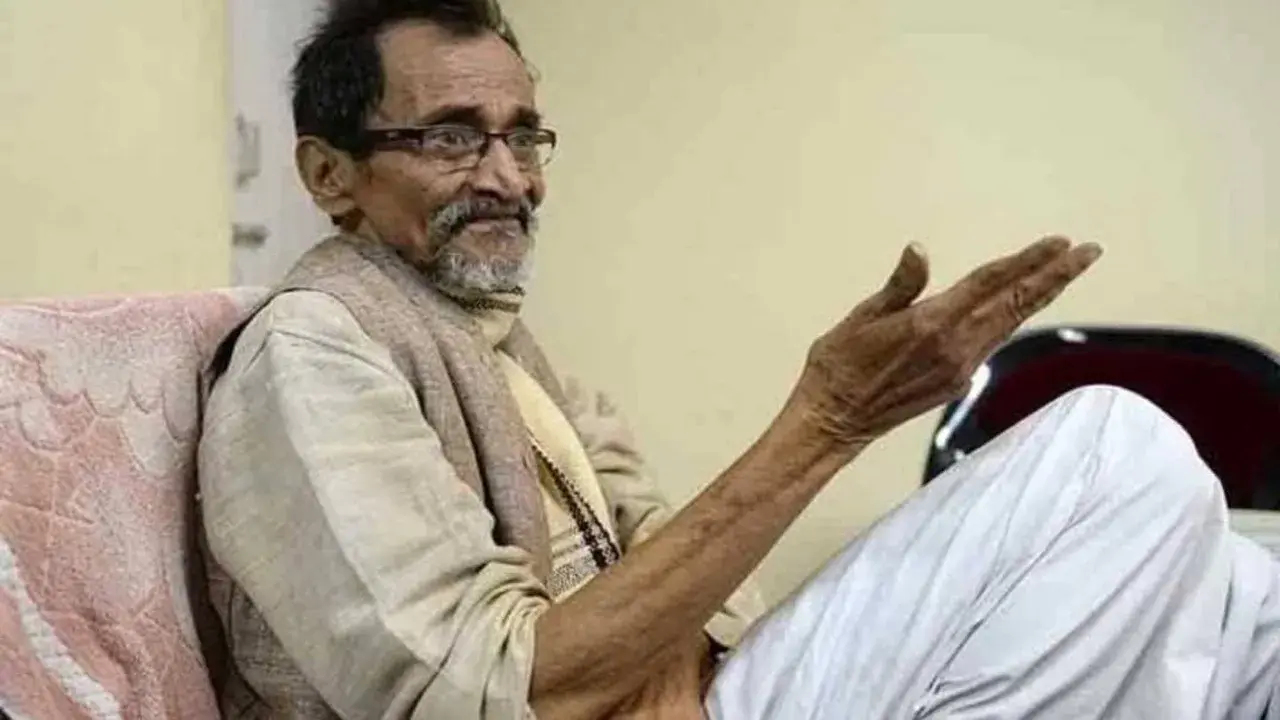
Azizul Haque, iconic Naxalite leader and revolutionary thinker, dies at 83, closing a defining era in Bengal’s radical left-wing politics and ideological activism
Azizul Haque death news – The death of Azizul Haque, veteran Naxalite leader, poet, and political thinker, marks the end of a turbulent yet transformative chapter in Bengal’s radical Left history. At 83, Haque breathed his last in Kolkata on July 21, 2025, leaving behind a legacy steeped in rebellion, ideology, and unwavering conviction.
Table of Contents
A Life Forged in Revolution
Born in Howrah in 1942, Azizul Haque was part of the generation that ignited the Naxalbari uprising, a movement that shook India in the 1960s and ’70s. Inspired by Charu Mazumdar’s doctrine, “bonduker nol-i, khomotar utsa” (political power flows from the barrel of a gun), Haque embraced Maoist ideology and became a towering figure in the Communist Party of India (Marxist–Leninist).
His early years were marked by underground activism, ideological debates, and a fierce commitment to the cause of agrarian revolution. He was first arrested in the Parvathipuram conspiracy case in 1970, and over his lifetime, spent nearly two decades in prison, becoming a symbol of ideological resilience.
The Writer Behind the Revolutionary
Beyond the battlefield of ideas, Haque was a prolific writer. His memoir, Karagare Atharo Bochor (Eighteen Years in Jail), remains one of the most poignant firsthand accounts of the Naxalite movement. His essays and columns continued to challenge establishment thinking, even as he gradually distanced himself from hardline Naxalism in later years.
His other notable work, Naxalbari: Tirish Bochor Aage ebong Pare, offered a reflective critique of the movement’s evolution and its ideological fractures.
From Radicalism to Reform
In a surprising shift, Haque supported the CPI(M)’s industrialisation drive in Singur in 2006, distancing himself from former comrades who opposed land acquisition. This move signaled his pragmatic turn—choosing development over dogma, while still retaining his rebellious spirit.
He famously said, “Leftism is to walk against the current,” and lived by that ethos till the end, contributing to journals and newspapers with a streak of defiance that never dulled.
Political Isolation and Enduring Influence
Haque was expelled from the CPI for endorsing Mazumdar’s radical line, later co-founding the Second Central Committee with Nishith Bhattacharya. Under their leadership, the faction attempted to establish parallel revolutionary governments in rural Bengal and Bihar, a bold but ultimately unsustainable vision.
His re-arrest in 1982 sparked outrage even within Bengal’s ruling Left Front, with ministers advocating for his parole. Despite political isolation, Haque remained a respected figure across ideological lines.
Tributes and Reflections
West Bengal Chief Minister Mamata Banerjee expressed deep condolences, calling Haque a “fighter who never bowed down in his long political life.” Her tribute reflects the respect he commanded, even among those who opposed his methods.
For many, July 21, 2025, will be remembered as the day a radical conscience bid farewell, a moment that closes the book on one of the last living links to Bengal’s revolutionary past.
Conclusion: The Last Rebel
Azizul Haque’s death is not just the passing of a political veteran, it’s the quiet extinguishing of a revolutionary flame that once lit the path for thousands. His life was a testament to conviction, sacrifice, and the enduring power of dissent.
As Bengal and India reflect on his legacy, one thing remains clear: Haque’s story is inseparable from the story of radical politics in India. And though the man is gone, the questions he raised and the ideals he fought for continue to echo.
Stay updated with the latest news on Rapido Updates. Keep yourself updated with The World, India News, Entertainment, Market, Automobile, Gadgets, Sports, and many more